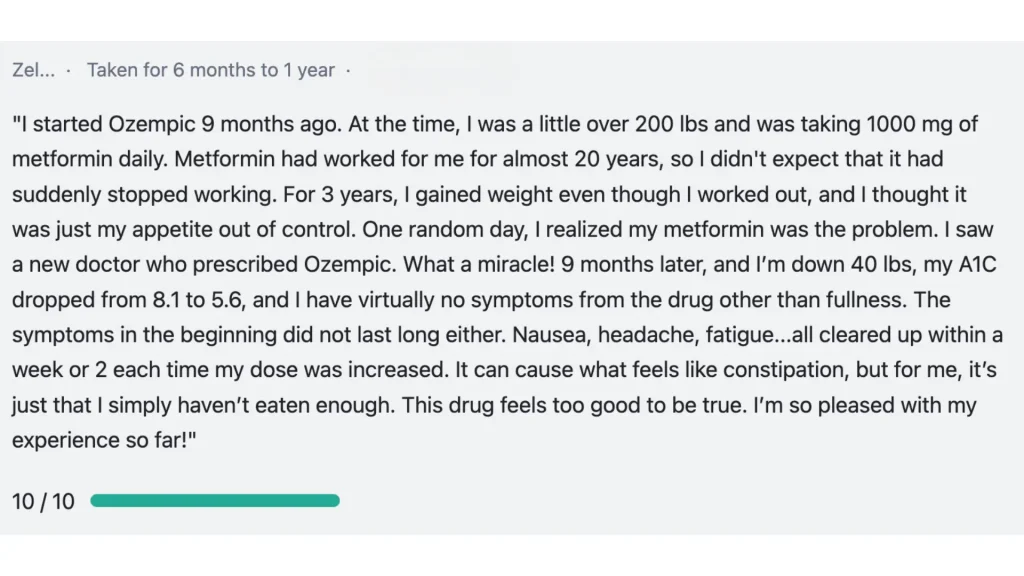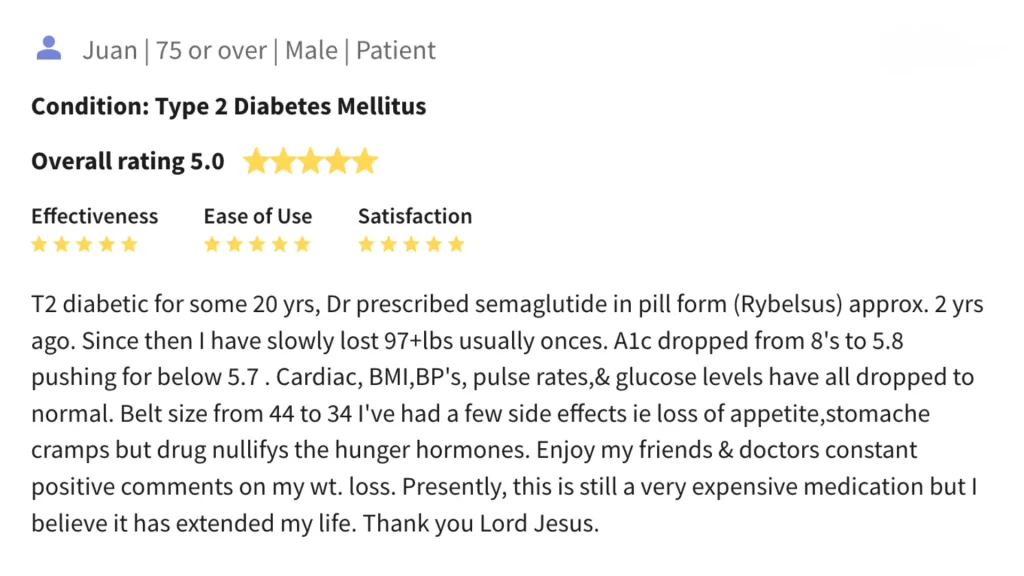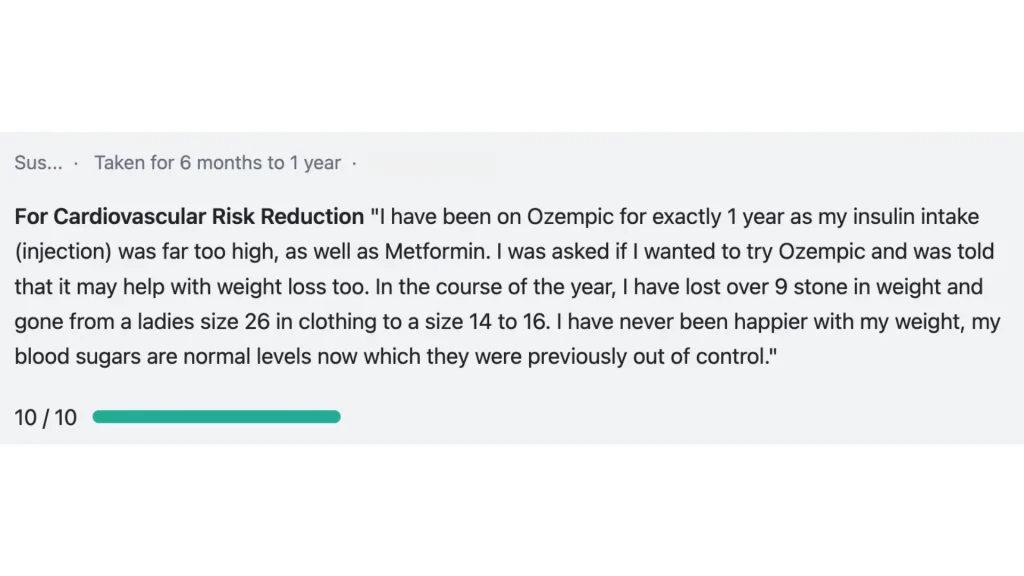Understanding how patients respond to their medications is a cornerstone of safe and effective care. Hearing directly from those who use and administer a treatment can reveal valuable details about side effects, adherence, and day-to-day experiences that numbers alone can’t fully capture.
When it comes to Ozempic (semaglutide), a medication originally approved for type 2 diabetes and now widely discussed for its weight management effects, real-world reviews have become an important part of the conversation. Patient stories and practitioner insights can help identify common challenges and successes, adding depth to what clinical trials have already shown—while still requiring careful, evidence-based interpretation.
In this article, we’ll explore what patients and healthcare professionals are saying about Ozempic, how these perspectives compare to published research, and what they reveal about its real-world safety, tolerability, and effectiveness.
Key Takeaways
- Ozempic is an FDA-approved injection treatment for type 2 diabetes that helps improve blood sugar control, supports moderate weight loss, and reduces cardiovascular and kidney disease risks.
- Clinical evidence shows that once-weekly semaglutide injections significantly lower A1C levels and promote better metabolic health when combined with lifestyle changes.
- While many patients report positive outcomes, gastrointestinal side effects such as nausea, diarrhea, and abdominal discomfort remain the most frequently cited challenges.
- Healthcare providers emphasize slow titration of injection dose, dietary counseling, and early symptom management to improve tolerability and adherence.
- Wegovy, which is another semaglutide formulation from Novo Nordisk, uses higher doses and is approved specifically for chronic weight management. It is unlike Ozempic, which focuses on diabetes treatment.
- Patients should always consult a qualified healthcare professional before patients started Ozempic or adjusting this GLP 1 receptor agonist injection to ensure safe dosing, proper monitoring, and individualized care.
About: Medica Depot is your trusted all-in-one supplier, offering a range of high-quality medical injectables and supplies. If you’re looking to buy Ozempic, contact Medica Depot’s sales representatives, and they will guide you on how to do so. Whether for health professionals, plastic surgeons, dermatologists, licensed estheticians, or other specialists, we can offer genuine, brand-name products you may need. With Medica Depot, we prioritize serving you better to improve the patient’s quality of life.
Practitioner Insights Into Ozempic’s Effectiveness and Safety
The Ozempic manufacturer, Novo Nordisk, has long been recognized for its leadership in diabetes and metabolic care. The company developed semaglutide formulations such as Ozempic and Wegovy, both sharing the same active ingredient but serving different clinical purposes.
Ozempic received approval from the U.S. Food and Drug Administration (FDA) for improving blood sugar control in adults with type 2 diabetes and for reducing the risk of major cardiovascular events and kidney disease progression in those with type 2 diabetes and chronic kidney disease (CKD).
Clinical trials and regulatory reviews confirm Ozempic’s strong efficacy in glycemic control and weight reduction. According to its official prescribing information, patients who received Ozempic 0.5 mg or 1 mg once weekly over 30 weeks achieved statistically significant improvements in A1C levels. A separate 56-week trial using 1 mg weekly also demonstrated sustained blood sugar control and meaningful weight loss.
In daily practice, safety and tolerability guide how clinicians use Ozempic. Providers often employ slow, stepwise titration when they started Ozempic, pair treatment with dietary counseling, and manage gastrointestinal effects early to maintain adherence and improve patient comfort.
Patient Experiences With Ozempic for Weight and Diabetes
As real-world evidence grows, many patients taking Ozempic share encouraging experiences with the GLP-1 receptor medication for managing type 2 diabetes and related risks. Adults with elevated cardiovascular or kidney risk have described significant improvements in blood sugar control, weight reduction, and overall well-being.
Across online platforms and community forums, patients often post their Ozempic reviews—honest accounts that help others understand what to expect from treatment. While these stories are anecdotal, they complement clinical trial data and highlight how individual responses may vary.


Before taking Ozempic initiation, patients must undergo thorough screening and consultation with a healthcare professional. Providers assess suitability, guide proper Ozempic dosage and titration, and explain potential side effects and benefits. This collaborative approach supports both safety and long-term treatment success.
Common Positive Outcomes Reported With Ozempic
Clinical studies consistently show that Ozempic produces substantial reductions in glycated hemoglobin (A1C) levels and supports weight loss when combined with healthy lifestyle changes. In individuals with type 2 diabetes, these effects also correlate with improved blood pressure, lipid profiles, and inflammatory markers, contributing to overall metabolic health.

However, it’s important to clarify that Wegovy, not Ozempic, is the semaglutide formulation approved specifically for weight loss management. Wegovy uses higher weekly doses (up to 2.4 mg), whereas Ozempic’s maximum approved dose is 2 mg once weekly. Despite this distinction, both share overlapping benefits in supporting long-term metabolic improvements.
Real-world studies echo these findings, showing that patients who remain adherent to treatment experience better glycemic control and cardiovascular protection over time. These results reinforce the drug’s role as part of a comprehensive care plan for individuals with type 2 diabetes.
Limitations and Criticisms Seen in Ozempic Reviews
Despite its proven benefits, Ozempic still has its side effects. Patient and provider reviews frequently cite gastrointestinal symptoms as the most common challenge during dose escalation or early treatment phases.
Commonly reported side effects include:
- Nausea
- Vomiting
- Diarrhea
- Abdominal pain
- Constipation
These effects typically diminish over time but can occasionally lead to treatment interruption. Some patients also report weight regain after discontinuing semaglutide—raising important questions about long-term maintenance and the need for ongoing therapy.
Healthcare professionals address these challenges through gradual dose titration, dietary adjustments, and proactive symptom management. By setting realistic expectations and encouraging communication, providers can help patients navigate tolerability issues while maintaining adherence and achieving the full benefits of therapy.
Conclusion
Ozempic remains a cornerstone treatment for type 2 diabetes, offering meaningful improvements in blood sugar control, cardiovascular protection, and kidney health. Combining clinical expertise with patient experiences gives a fuller picture of how this medication performs in real-world settings.
Patients should maintain open communication with their healthcare teams, especially regarding side effects or treatment challenges. Together, they can adjust therapy plans, dietary habits, and support systems to ensure safety and long-term success.
By understanding both the scientific evidence and human experience behind Ozempic, patients and providers can make confident, informed decisions that support better health outcomes.
FAQs
1. What are the main benefits of using Ozempic?
Ozempic (GLP 1 receptor medication) helps manage type 2 diabetes by improving blood sugar control, reducing A1C levels, and supporting weight loss management. It also lowers the risk of heart attack, stroke, and kidney disease progression in eligible patients.
2. What side effects should patients expect while using Ozempic?
Common side effects include mild to moderate nausea, vomiting, diarrhea, and constipation, especially during early treatment or dose escalation. These effects often improve over time with proper titration and dietary adjustments.
3. Why is it essential to consult a healthcare provider before starting Ozempic?
A healthcare provider can assess individual health needs, guide proper dosing, and explain the benefits and potential risks. Professional oversight ensures safe initiation, helps prevent complications, and supports successful long-term management.
References
General Medical Council. Reviewing medicines. Gmc-uk.org. Accessed October 13, 2025. https://www.gmc-uk.org/professional-standards/the-professional-standards/good-practice-in-prescribing-and-managing-medicines-and-devices/reviewing-medicines
Novo Nordisk Inc. Ozempic (Semaglutide Inejction) | HIGHLIGHTS of PRESCRIBING INFORMATION. novo nordisk Accessed October 13, 2025. https://www.novo-pi.com/ozempic.pdf









